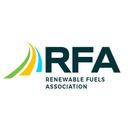Aemetis Inc., a renewable natural gas and renewable fuels company focused on low and negative carbon intensity products that replace fossil fuels, on Aug. 1 announced Q2 2024 revenues were up 48% when compared to the same period of 2023.
An IFF scientist outlines how enzymes can help producers maximize distillers corn oil extraction in fermentation.
ImagoAI Inc. has announced a new collaboration with the USDA that aims to transform the landscape of mycotoxins testing by developing a handheld mycotoxins test that delivers results in less than 30 seconds.
The RFA has scheduled a Food Safety Modernization Act training program on Preventive Controls for Animal Food compliance, tailored specifically for the ethanol industry. The 20-hour course will be held Aug. 27-29 in Des Moines, Iowa.
Operable U.S. biofuel capacity expanded in May, with gains for ethanol, biodiesel and renewable diesel, according to data released by the U.S. Energy Information Administration on July 31. Feedstock consumption was down.
Sens. Sherrod Brown, D-Ohio, and Roger Marshall, R-Kan., and 13 of their colleagues are urging Treasury Secretary Janet Yellen to restrict the 45Z Clean Fuel Production Credit to fuels made from domestic feedstocks.
Verbio has commenced the commercial production of corn-based ethanol at its 60 MMgy biorefinery facility in Nevada, Iowa. The facility also has the capacity to produce 2.3 million MMbtu of RNG.
Flex fuel vehicle drivers can reap substantial savings on Aug. 5 in celebration of Pearson Fuel's first national E85 Day. More than 200 Pearson Fuels retail stations will offer E85 for $1.85 per gallon from 8:30am Aug. 5 to 8:30am on Aug. 6.
The Surface Transportation Board on July 15 announced that it will hold an in-person public hearing on Sept. 16 and 17, 2024, to gather information about recent trends and strategies for growth in the freight rail industry.
U.S. fuel ethanol production reached a record high of 1.109 million barrels per day the week ending July 26, up slightly from the previous record of 11.08 million barrels per day set late 2017, according to data released by the U.S. EIA on July 31.
Growth Energy on July 31 filed a notice of intent to sue the U.S. EPA regarding the agency’s anticipated failure to meet its statutory deadline for issuing the 2026 Renewable Volume Obligation under the Renewable Fuel Standard.
Fluid Quip Technologies on July 30 announced the successful completion and commissioning of the world’s largest MSC System to date at Tharaldson Ethanol’s 175 million-gallon biorefinery in Casselton, North Dakota.
Green Impact Partners Inc. has finalized the carbon credit pathways under the Alberta Technology Innovation and Emissions Reduction program for its flagship project, the Future Energy Park, to be located in Calgary, Alberta.
ADM on July 30 released second quarter results, reporting improved ethanol margins supported by robust demand for fuel ethanol in both domestic and export markets. Stronger margins are currently expected to continue into the third quarter.
U.S. Grains Council members are gathered in Salt Lake City, Utah, for the organization’s 64th Board of Delegates Meeting, held July 29-31. Market development activities for ethanol and distillers grains were among the topics addressed at the event.
Sixteen retail service stations throughout the state have received grant funding from the Minnesota Department of Agriculture to increase access to and sales of motor fuel blends containing at least 15% ethanol.
Propel Fuels Inc., a leading retailer of low-carbon fuels at stations throughout California, shared on July 29 that its trade secret misappropriation case against Phillips 66 Co. has been scheduled for jury trial on Aug. 26 .
Recently, nearly 100 industry stakeholders gathered for the U.S. Grains Council’s (USGC’s) 2024 Corn and Ethanol Conference in Tokyo, Japan. The event enhanced relationships between U.S. producers and agribusinesses and Japanese importers.
Valero Energy Corp. released Q2 financial results on July 25, reporting strong performance for both its ethanol and renewable diesel segments. The company’s SAF project in Texas remains on track to begin operations later this year.
U.S. fuel ethanol production was down 1% the week ending July 19, according to data released by the U.S. Energy Information Administration on July 24. Ethanol stocks were up more than 2% and exports were down 34%.
LanzaJet on July 24 announced a strategic investment from Airbus. The investment enables LanzaJet to continue to build its capability and capacity to scale its proprietary ethanol to sustainable aviation fuel (SAF) process technology.
The U.S. EPA on June 7 approved an efficient producer pathway for Siouxland Ethanol LLC’s corn ethanol plant located in Jackson, Nebraska. The approval allows the facility to generate RINs under the RFS for non-grandfathered volumes of ethanol.
The U.S. EPA on July 18 announced it has reached a settlement with Lupton Petroleum Products Inc., and its affiliate Brad Hall Associates Inc., for violations of the Clean Air Act’s conventional and renewable fuel requirements.
The U.S. Department of Transportation’s Federal Aviation Administration has launched $1 billion fiscal year (FY) 2025 funding opportunity that could help U.S. airports develop infrastructure to increase access to sustainable aviation fuel (SAF).
Emerging opportunities in Southeast Asia for the U.S. Grains Council’s ethanol programs are beginning to show significant merit and engagement.
Corn growers were responsible for a $151 billion boost to the U.S. economy in 2023, according to a new report released in July by the NCGA. The report looked at a number of ways in which corn growers shaped the economy.
DOE issues notice of intent to fund industrial partnerships across the bioenergy and bioproducts value chain
The DOE has announced its intent to fund partnerships between industry stakeholders and Feedstock-Conversion Interface Consortium researchers. The partnerships will address the cost and risk impacts of feedstock and process variability.
Analyzing the pros and cons of the 40BSAF-GREET model, industry leaders suggest what its replacement tax credit structure, 45Z, should preserve, change and eliminate to fairly and effectively accelerate alcohol-to-jet SAF production.
Nearly 2.04 billion RINs were generated under the RFS in June, down from 2.06 billion generated during the same month of last year. Total RIN generation for the first half of 2024 reached 12.07 billion.
The U.S. EPA on July 18 released updated small refinery exemption (SRE) data, reporting that seven new SRE petitions have been filed under the RFS during the past month. A total of 46 SRE petitions are now pending.
Advertisement





























